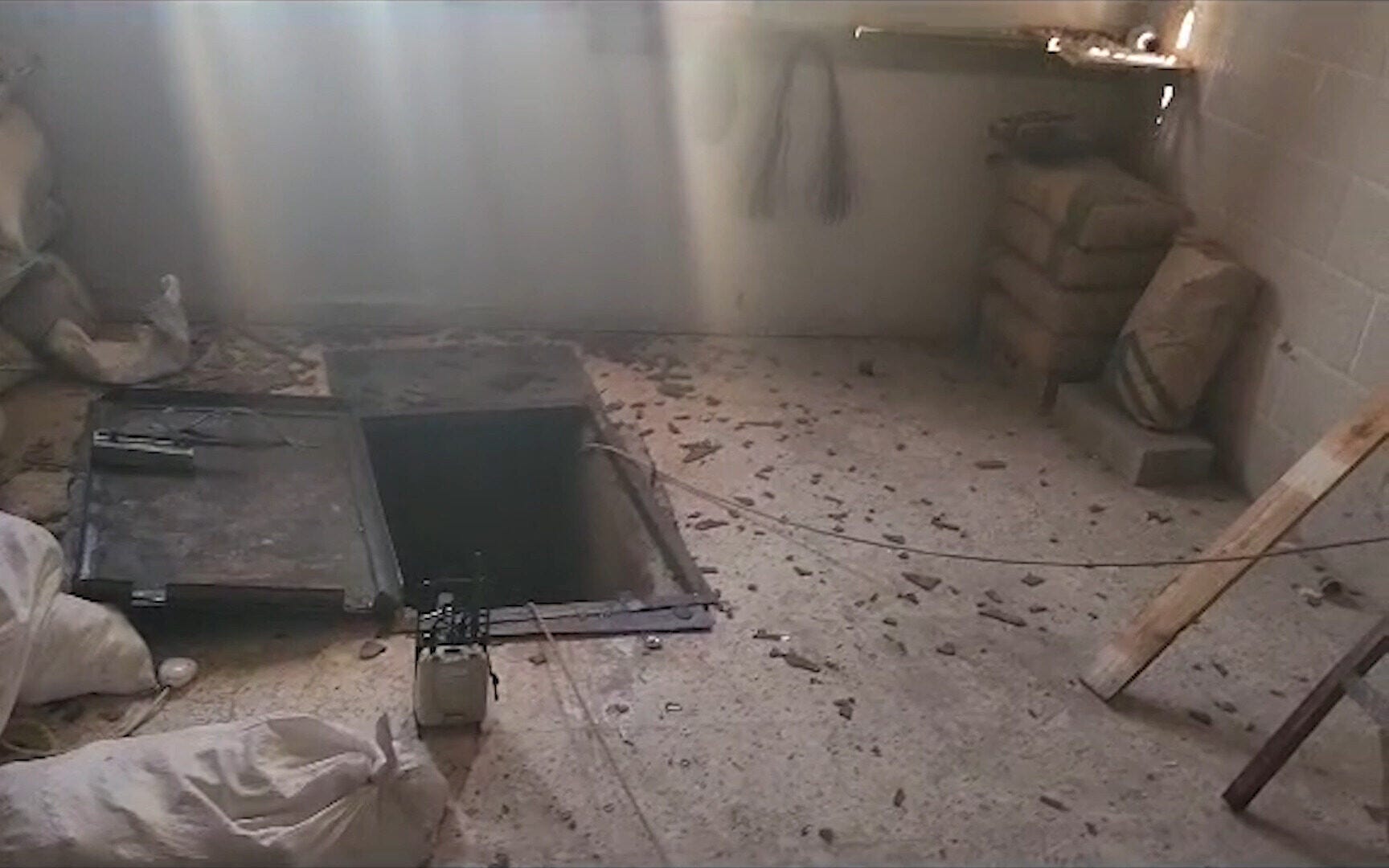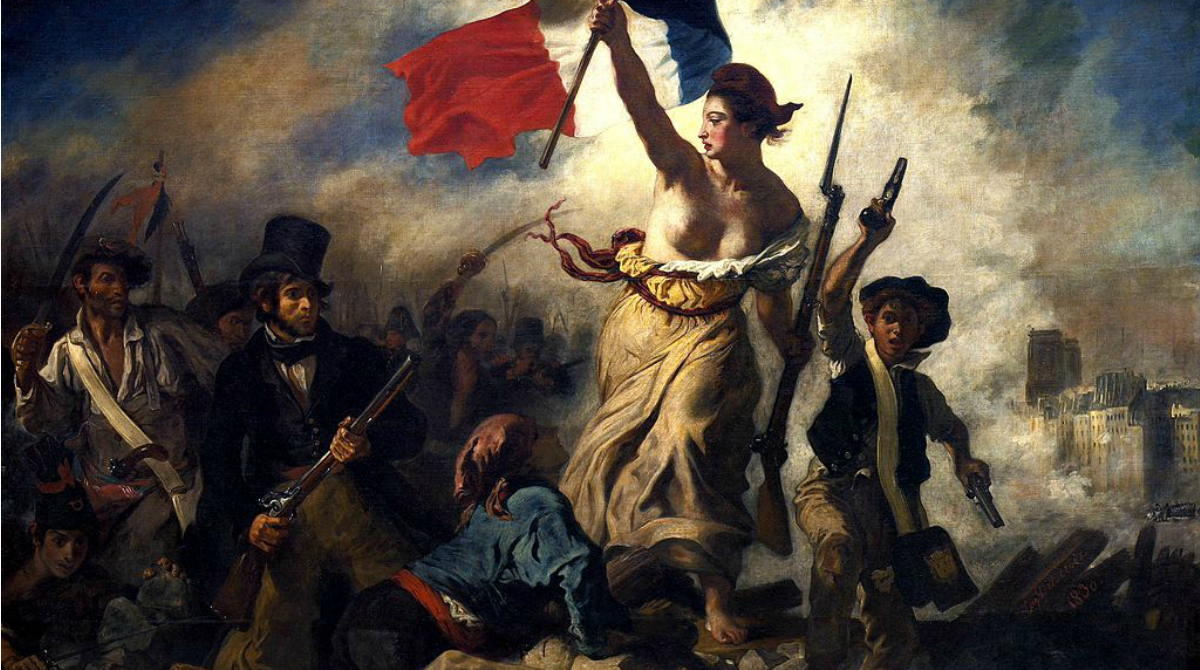50 Supreme Court decisions that were based on justices’ interpretations and opinions, rather than the law
Look at Israel’s High Court of Justice rulings to understand “judicial reform”
By David Bedein
The time has come to explain “Israel judicial reform”.
Here are 50 Israel High Court of Justice decisions based on justices’ interpretations or opinions, rather than any law
Security and terror
The Supreme Court:
- Set severe limitations on targeted killing of terrorist leaders (2006)
- Prohibited use of a method saving lives of IDF soldiers known as the “neighbor rule” – i.e. when there is a strong possibility that an armed wanted terrorist lurks behind a door that must be opened, soldiers would have a Palestinian Arab stand in front of them and let the terrorist inside the room know about it so he would not shoot- (2005)
- Minimized permitted areas to be demolished in terrorist homes and delayed decisions for long periods, making them less effective –( 2016, 2018, 2020, 2020 etc).
- Heard suits brought by terrorists who are citizens of enemy states-(Dirani, 2011)
- Limited IDF activity while fighting was taking place and set guidelines for IDF officers – (Church of the Nativity 2002, Rafiah 2004}
- Cancelled the Interior Minister’s decision to void residence permits for Palestinian Parliament members who are Hamas delegates –(2017)
- Ordered granting National Insurance payments to terrorists whose citizenship was cancelled –(2022)
- Refused to allow Israel to keep bodies of killed terrorists as bargaining points for the return of IDF soldier’s bodies (2017 – rescinded 2019!)
- Struck down the law denying monthly child benefits for a terrorist who is a minor – (2021)
- Interfered in IDF security considerations for marking the location of the separation fence – (2004)
Immigration
The Supreme Court:
- Blocked the government policy for protecting elderly residents of south Tel Aviv terrorized by lawless illegal employment-seeking infiltrators from African countries who moved into the neighborhood en masse – by invalidating three different laws meant to prevent illegal infiltration-(2013 2014, 2015).
- Blocked the government plan for relocating infiltrators to another African country –(2017)
- Invalidated the “collateral law” meant to encourage infiltrators return to their native country – (2020)
- Invalidated the Interior minister’s decision to limit the number of non-Jewish Ukrainian refugees allowed into Israel –(2022)
- Determined the status of female infiltrators as refugees based on a hypothetical possibility that they might undergo circumcision in their country of birth – (2020)
- Eased the process for residency permits in Israel for Gazan Palestinian Arabs- (2017).
Zionism:
The Supreme Court:
- Interpreted the Nation State Law, the Basic Law defining Israel as the nation-state of the Jewish People, so that it cannot have any effect on national policy –(2021)
- Forced the Education Ministry to award the Israel Prize to a BDS supporter despite the ministry’s decision not to do so – (2022)
- Struck down the Interior Minister’s decision to prevent entry to Israel of a BDS activist –(2018)
- Struck down the Film Critics Council decision to forbid the screening of “Jenin Jenin” – a mendacious slanderous film that accused IDF soldiers of a massacre in Jenin, when the truth was that 11 IDF soldiers paid with their lives for the decision not to bomb the city (after warning its residents to leave), thus exposing them to snipers in house to house fighting.
- Struck down the Knesset Elections Committee decision to prohibit those who openly support terror from running for Knesset – (Zakhalka 2002, Yazbak 2020)
- Struck down the Defense Minister’s decision to forbid terrorist families from Judea and Samaria to attend a ceremony organized by the left for bereaved Jewish and Arab families whose sons were terrorists -(2018, 2023)
- Ordered signs in Arabic in areas without Arab residents –(2002)
- Struck down suits brought to the court against illegal building of mosques on the Temple Mount (Solomon’s Stables 2004, Mercy Gate, 2020)
- Struck down suits brought to request partial or full freedom of worship for Jews on the Temple Mount – (2006 2021)
- Nullified the effectiveness of the law against boycotts of firms/businesses by BDS organizations by adding that fines can only be applied if damage to the business can be proven – an almost impossible demand due to all the factors involved in business gains and losses –(2015)
Land and settlement
The Supreme Court:
- Cancelled the long-existing policy allowing the establishment of villages that accept only Jews –(Katsir vs. Kaen 2000)
- Struck down the “Regulating Law” intended to regulate the status of homes built in Judea and Samaria on land whose ownership was contested after the homes were built, by paying claimants for it. Jewish homes were destroyed even though there was no way Arabs could use the land they claimed title to as it was located in the middle of existing communities and it was to the claimant’s advantage to be paid for it- (Ofra 2014, Netiv Haavot 2016).
- Discriminated against Israelis in outposts by ordering them destroyed without proofs of Arab claimants’ ownership – (Amona 2006, 2016, Migron 2011).
- Expelled Jewish residents of Beit Ezra in Hevron against the wishes of the owners and the opinion of the Appeals Committee – (2012)
- Upheld the status of the illegal settlements of Negev Bedouin – (Adalah 1997, Abu Efash 2000, Abu Mis’ad 2006′ Adala 2016)
- Upheld the racist PA law against selling land to Jews in Judea and Samaria (punishable by death) – (2022)
The Economy
The Supreme Court:
- Blocked the government plan for solving the housing crisis
- Interfered in interpretations of contracts in contradicton to the wording of those contracts –(Apropim 1995)
- Interfered in the government’s plan for developing the offshore gas fields damaging Israel’s credibility in financial agreements. (2016)
Religion, state and family
The Supreme Court
- Forbade hospital administrators to keep chametz out of hospitals on Pesach – (2022, rescinded in 2023).
- Allowed and upheld opening businesses on Shabbat in Tel Aviv –(2017).
- Forced a husband divorcing an unfaithful wife to share property that was proved to be his alone with the unfaithful spouse –(2021).
- Forced changing the law so that same sex partners can arrange surrogate pregnancies in Israel –(2020)
- Encouraged fining Channel 20 (now Channel 14) for not featuring members of the Reform Movement (not officially recognized in Israel) in broadcasts – (2017).
- Accepted the suit to allow pornographic broadcasts – (2004).
- Prevented the haredi sector from having cultural events with separate seating for men and women although that is their halakhic position – (2019)
Political skewing
The Supreme Court:
- Struck down the Knesset’s Arutz Sheva Law that allowed the broadcasts of the only right wing radio station at the time –(2002).
- Interfered with MK Yuri Edelstein (Likud) serving as Knesset Speaker although this is against the Knesset’s bylaws –(2020).
Interim governments – inconsistency in rulings
The Supreme Court:
- Prevented the Internal Security Minister from evacuating the Orient House during an interim government –(1999)
- Struck down the suit against holding Taba negotiations during the period of a small interim government-(2001))
- Struck down the suits against concluding an agreement on maritime borders with Lebanon during an interim government – the agreements were not brought to the Knesset – (2022)
- Created a doctrine to allow striking down Basic Laws –
- Prevented a Jewish member of Knesset, Michael Ben-Ari from running for the Knesset while permitting the Balad Arab party to run in contradiction to the decision of the Israel Elections Committee –(2019)
- Backed the Supreme Court Chief Justice’s decision to boycott the national ceremony celebrating 50 years of settlement in Judea and Samaria – (2017)
The research for this list was done by Dr. Assaf Malach founding director of the Jewish Statesmanship Center in Jerusalem and served former director of the Committee for Citizenship Studies at the Israe Ministry of Education 1915-2022.
The translation of this list was done by Rochel Sylvetsky who made aliya in 1971,and served as Chairperson of Emunah Israel
House Republicans are drawing a bright line on UN reform
Liberals don’t like spending cuts, and they especially love spending taxpayers’ money abroad. So when the House Appropriations Subcommittee on State, Foreign Operations, and Related Programs released its funding bill for fiscal year 2024 last month, the responses were predictably hyperbolic.
“Extremely disturbing,” said Rep. Barbara Lee (D-Calif.). Rep. Rosa DeLauro (D-Conn.) declared that the bill “shortchanges foreign assistance, abdicates our country’s leadership on the global stage, hinders our ability to address the climate crisis, abandons global security, and harms women around the world.”
If implemented, Chairman Mario Diaz Balart’s (R-Fla.) bill would provide $52.5 billion for the State Department, U.S. foreign assistance programs, international organizations, and related programs. This is lower than the previous year, reflecting the need to get America’s fiscal house in order, but it is hardly an irresponsible cut. It is roughly comparable to spending levels from fiscal years 2015 and 2016, when the notorious isolationist Barack Obama was in the White House.
Liberals are, of course, disappointed in the level of funding. But the real source of their angst is that the bill reflects conservative policy.
One example is the bill’s prohibition on funding Diversity, Equity, and Inclusion programs. DeLauro deplores the ban as the insertion of “politics into our foreign policy.” Of course, the bill is merely a response to President Biden’s Executive Orders. So, who exactly inserted politics into foreign policy?
The bill also substantially cuts back on the huge spike in U.S. funding for international climate change initiatives such as the Green Climate Fund, which is heresy on the left. But, as noted by Rep. Mike McCaul (R-Texas), these programs have been “funneling millions to China,” even as its emissions are growing larger than those of the U.S. and all developed countries combined. Beijing refuses to take timely action to cut emissions, so why should taxpayers fund programs that reward its behavior?
Similarly, the left opposes the strong pro-life protections applied to U.S. foreign assistance in the bill, including terminating funding to the UN Population Fund, which conservatives like Rep. Chip Roy (R-Texas) assert supports abortion.
The United Nations receives the biggest haircut in this bill. U.S. contributions for UN peacekeeping were reduced to comply with a U.S. law which rightly sets a 25 percent cap on U.S. contributions. Contributions to international organizations are cut by 82 percent, and voluntary funding to international organizations is eliminated.
UN advocates were irate. “By removing funding for the UN, this bill would cause untold suffering, endanger allies, and create a leadership vacuum at the UN that China and Russia would be very happy to fill,” said Peter Yeo, President of the Better World Campaign.
This belated concern on the left about malign influence within the UN is welcome. But much like the Biden administration, they are confusing funding with influence. Naively, President Joe Biden re-engaged and provided funding with no strings attached, with the expectation that this would be rewarded with other countries’ support for U.S. policies. As the following examples demonstrate, it was not to be.
Take the UN Human Rights Council. Despite acknowledging its deep institutional problems with anti-Israel bias and lack of membership standards, the Biden administration reengaged with the Council without any conditions.
Similarly, the administration reversed the Trump administration decision to withdraw from the World Health Organization (WHO) and, again, renewed funding without seeking reforms or changes despite the WHO handling the COVID pandemic terribly, ostracizing Taiwan, and excusing Beijing’s opacity and lack of cooperation.
The Biden administration also ramped up funding for the United Nations Relief and Works Agency (UNRWA) – a deeply flawed organization whose schools and teachers have been shown to espouse anti-Semitic views.
The Biden administration also recently announced that was seeking to rejoin the UN Educational, Scientific and Cultural Organization (UNESCO) even though the Palestinians retain full membership in the organization absent a peace with Israel. As Rep. Brad Sherman (D-Calif.) stated when they were granted that status, “A UN body that acts so irresponsibly — a UN body that admits states that do not exist — renders itself unworthy of U.S. taxpayer dollars.”
Notice the pattern? Again and again, the Biden administration rewards broken organizations with U.S. taxpayer money without demanding that they improve or change.
The Biden administration fixates wrongly on having “a seat at the table” in international organizations, convinced that engagement is a good in itself. Unfortunately, the evidence shows that “being there” is not enough, and that unconditional reengagement and even funding do not create spontaneous support for American goals.
The Human Rights Council, for example, remains dominated by anti-democratic human rights abusers. Despite Biden’s reengagement, the U.S. was unable to convince a majority of the Council to support a debate about the UN report on China’s human rights crimes in Xinxiang. Nor was the U.S. able to affect the council’s anti-Israel bias, as recently exhibited by the Commission of Inquiry on the Occupied Palestinian Territory, including East Jerusalem and in Israel.
With U.S. reengagement, the World Health Organization member states recently voted to condemn Israel, oppose Taiwanese participation as an observer, and elect North Korea to its Executive Board. The WHO has never condemned China for its central role in the COVID pandemic.
Likewise, despite a Framework Agreement with UNRWA to strengthen “accountability, transparency, and consistency with UN principles, including neutrality,” antisemitism in UNRWA schools and textbooks and glorification of terrorism by UNRWA staff remains rampant.
Meanwhile, the Biden administration would reward UNESCO with over $600 million in arrears, which UNESCO will turn around and use with “helpful” input from Afghanistan’s Taliban regime, China, Russia and other members of the UNESCO Executive Board.
All of the above illustrate why the House bill has taken such a tough line on UN funding. If the Biden administration will not insist on reforms and changes to advance U.S. interests, then someone must. Frankly, if the Biden administration had given any indication at all that it was seeking to advance U.S. interests and reform of these organizations, perhaps the House would have would been more amenable to funding them.
In addition to providing a much-needed reality check, this spending bill is smart strategically. No one gets everything in a divided government. The House bill is not the final word, but it must be reconciled with the Senate bill. Some UN funding, such as the UN regular budget funding, will undoubtedly be increased. That is not necessarily a bad thing, so long as it supports U.S. interests.
But conservatives in the House are right need to stand firm and oppose blank checks. In the cases of such deeply flawed organizations as the UN Human Rights Council, UNESCO, UNRWA, and the WHO, funding must be linked to long-overdue reforms. Diaz-Balart clearly understands the need to stake out a strong position from which to start negotiations.
Foreign office refuses request for documents concerning UK aid to Palestinian Authority
The Foreign, Commonwealth & Development Office (FCDO) has refused to disclose and publish documents concerning how British aid to the Palestinian Authority is audited.
In a statement to the Israel campaign groups We Believe in Israel and B’nai B’rith UK, the foreign office said:” “The disclosure of information detailing the audit reports of the
Palestinian Recovery and Development Programme could potentially damage the bilateral relationship between the UK and Palestine.”
The two pro-Israel groups had asked for the documents under a joint freedom of information (FOI) request sent by We Believe in Israel and B’nai B’rith UK in May 2023.
This FOI request was motivated by a desire to establish whether or not British taxpayers are funding the notorious “Pay for Slay” scheme where the Palestinian Authority incentivises terrorism by disbursing salaries to convicted terrorists while they are in Israeli prisons, or their families in the event of their death.
Luke Akehurst, Director of We Believe in Israel, said: “Our FOI request was submitted in good faith as part of an attempt to ensure that British aid to the Palestinian Authority is not being used to support, facilitate, or incentivise terrorism, be that directly or indirectly.
“By initially failing to lawfully respond and now refusing to provide the disclosure, the FCDO raises questions about the integrity of its foreign aid distribution, especially to the Palestinian Authority.
“It is also highly likely that oversight mechanisms are lacking, and the FCDO are attempting to conceal serious due diligence failures.
“We have requested an internal review, and on exhausting internal appeals will re-refer the FCDO back to the ICO. We are determined to secure this disclosure, and will take all reasonable steps necessary to do so.”
In a refusal notice, the FCDO wrote: “The disclosure of information detailing the audit reports of the
Palestinian Recovery and Development Programme could potentially damage the bilateral
relationship between the UK and Palestine.
“This would reduce the UK government’s ability to protect and promote UK interests through its relations with Palestine, which would not be in the public interest.”
It was also suggested that the presence of third party personal data prevented publication, despite how easily such content could be redacted.
The two groups said this decision contradicts precedents set by the ICO when, in 2019, they ordered the now defunct Department for International Development (DFID) to release similar documents requested by UK Lawyers for Israel.
Israel must act
Israel faces multiple crises that require immediate action.
The first challenge is a well-planned rebellion now underway, orchestrated by the Fatah, also known as the PLO- the Palestine Liberation Organization.
This generation of Fatah has learned to manipulate public opinion through carefully coordinated violent actions and logistical support.
Their campaign promotes the right of return to Arab villages that existed before 1948, even though this has no basis in reality.
This generation of Fatah has learned to manipulate public opinion through coordinated violent actions and logistical support.
Their campaign promotes the right of seven million Arabs who dwell as refugees in perpetuity in 59 “temporary” refugee camps to return to Arab villages that existed before 1948, UNRWA, in charge of thes refugee camps, has created a school system centered around the right of return, evident in school books, songs, plays, and youth clubs.
The UNRWA schools reflect the fact that the PLO never ratified the ”declaration of principles” of the 1993 OSLO Accords, which require it to denounce terrorism and recognize of Israel
Yet there is a widely accepted notion that the PLO, operating under the guise of the PA, has abandoned the path to terror .
Indeed, the Israeli High Court of Justice under the leadership of Chief Justice Aharon Barak recognized the PLO as a legitimate entity, based on the recognition of the Palestinian Arab national aspirations in the 1979 Camp David Accords, written in part by then Israel- State Attorney Aharon Barak, the same jurist who became the Israel Chief Justice.
Now is the time to challenge PLO legitimacy under Israel and international law, because the PLO acts as an entity of terror- not as a partner for peace
A case in point: the unprecedented PA law that came into effect in 2015, when the PA established a fund to provide a salary for life for anyone who murders a Jew with a salary for life, or a salary for life for the family of the killer, if the killer dies in the act of murdering a Jew.
Shockingly, no government, including Israel, has demanded the repeal of this law.
My question to the spokespeople of both the US and Israel about whether either government would demand that the PA repeal this incentive to murder elicited an identical response from both governments- condemning “pay for slay”, not calling for its repeal.
A campaign must now be launched to demand the repeal of this “pay for slay” legislation, along with the prosecution of anyone who facilitates payments for murder, including any banks that process what amounts to be a reward for murder.
Israel must declare zero tolerance for any nation, or entity that does not demand the repeal of this unprecedented law.
To give a human face to this law, international zoom discussions with families can ensue, with those who have lost loved ones to these incentivized murders.
Only by seeing the human face can the depth of this crime be fully understood.
A practical suggestion :
Hold vigils at the Jerusalem Capital Studios, 206 Jaffa road, Jerusalem,where media can be can be direct; approached directly.
Such vigils should also involve those who suffer the pain of losing loved ones to murder, only to witness how their killers are rewarded with a fee for life.
By engaging public opinion, , it will become possible to challenge the blind acceptance of such a law, in order to facilitate a change in policy.






























































